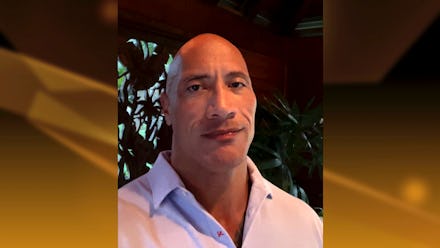Celebs, please stop running for office

The insidious creeping overlap between "politics" and "celebrity" is hardly a new phenomenon. Ronald Reagan was a mediocre actor before he started his foray into the political arena, first in California, then the White House; Jesse Ventura's path to the Minnesota governor's mansion was paved with pinned opponents and exuberant beer commercials; JFK slept with Marilyn Monroe and hobnobbed with Frank Sinatra. The list goes on and on.
America's symbiotic relationship between "widely known" and "immeasurably powerful" has no party allegiance nor ideological consistency to speak of. Instead, think of it more as a symptom of the country's longstanding obsession with the veneration of people over process. In the United States we carve idolatrous monuments to past presidents and create entire personal identities based on whom we voted for, rather than what they accomplished that we believed in.
It's a trend that's only gotten worse after Donald Trump orchestrated the most transparently craven leveraging of personal fame into political power in American history, winning the presidency with a combination of celebrity star power, earned in part from his years as a TV game show host, and populist racism. That Trump's time in office was defined by his inability to put two coherent thoughts together in sequence has only served to embolden a new generation of slightly-smarter celebrities whose lesson from the Trump era seems to be: "Well, if he could do it, why not me?"
To which I say: Fuuuuuck offfffffff.
Specifically, I'm saying "fuuuuuck offfffffff" to: Matthew McConaughey, who has been openly considering a run for Texas governor; Geraldo Rivera, who said Wednesday that he is eyeing Ohio's Senate soon-to-be open Senate seat; and Will Smith, who admitted last week to being potentially interested in some unspecified elected office "at some point down the line."
Perhaps most significantly, there's Dwayne "The Rock" Johnson, who has been teasing a potential White House run for years, but with an increasing sense of seriousness of late. There are plenty of others, too.
To be clear, the celebrity-to-politician pipeline is not a guaranteed failure, policy-wise. There have absolutely been some celebrities whose second acts in politics have been, if not "good," at least perfectly within the realm of reasonable governance. California didn't drop into the sea under Arnold Schwarzenegger, and lately I can't stop thinking about how New York would have fared with a Cynthia Nixon administration rather than under the lecherous thumb of Andrew Cuomo.
The issue here is not whether some celebrities have decent ideas — some certainly do! Rather, it's the growing trend to treat every celebrity as a potentially serious political candidate simply because they're already famous. It's a trend that prioritizes form (having a lot of money and many people knowing who you are) over function (having a deep understanding of how politics works and a sincere desire to use that knowledge to help people). It sucks the air – and airwaves — out of a given race. It just sucks, period.
There is no reason to think any of this latest crop of celebriticians actually has the skills — or the motivation — to make people's lives better through politics. All we know is that they have access to a larger megaphone than just about anyone else on Earth, simply because they're recognizable and wealthy. And while representative democracy — especially as it exists in the United States today — is far from perfect, waves of already-famous, already-powerful people flooding the zone is a particularly egregious exploitation of a system of governance already fatigued from four notably intense years of stress-testing.
Yes, I recognize that simply by writing this I'm giving our would-be celebrity overlords the very thing that makes them so powerful in the first place: attention. But it's only by naming the fact that we do not need any more tourist politicians-by-way-of-Hollywood that we have any chance of stopping it. So, yeah, give the celebs attention in this instance. Specifically, let them know that being successful in one field doesn't mean they're qualified to excel in another — particularly when that other field affords them the power to write laws that help or hurt the rest of us.